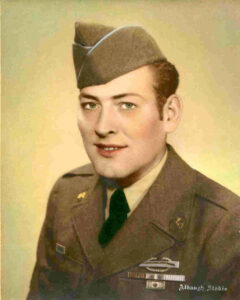
Roland Brown
Roland Brown was born in Tennessee during the Great Depression and joined the Army in 1950. He recalls his first impressions of Korea upon landing in Pusan in 1951, detailing the poor conditions. He recounts his experience with friendly fire and adds that many men were killed due to inadequate training and a lack of communication. He details the food scarcity endured on the front lines and offers an account of having to fend off Chinese and North Korean soldiers to secure provisions from an American airdrop. He shares his experience with PTSD upon his return home and reflects upon Korea of the past and its progress through the years. He is proud of his service and of the economic gains Korea has made since the war.
Korean War Legacy
This person has a detailed oral history page on the Korean War Legacy Foundation website, including a video interview, annotated clips, and more personal details:
Korean War - Key Events
June 27, 1950
The United Nations Security Council adopts Resolution 83, authorizing UN member states to provide military assistance to South Korea. The Soviets, who could have vetoed the resolution, are boycotting the proceedings because the Nationalist government on Taiwan still occupies China’s seat on the Security Council. Seoul falls the following day.
These events are taken from the Encyclopedia Britannica

Comments
Likes 3
You must be a registered user to comment or like - please register to join us!